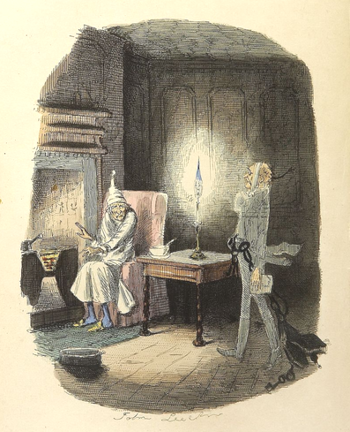Charles Dickens’ “A Christmas Carol” and the 12 Steps
Charles Dickens’ 1843 novel, A Christmas Carol is the famous tale of Ebenezer Scrooge, an old miser who is visited by spirits representing the past, present and future. The novel, while set during the Christmas season, is a story of redemption. It’s a wakeup call. It’s a lesson on making amends. And it has the Twelve Steps all over the place.

Steps 4-12 heavily involve the “other” of wronged people in our lives, hurt by our destructive choices. They speak to our rebellion of the changed life we need to experience.
4. We made a searching and fearless moral inventory of ourselves.
Charles Dickens’ “A Christmas Carol” and the 12 Steps Read More »




 clarity to life and relationship issues. She also desires to equip ministry leaders and lay counselors to reach out more effectively to those that are struggling with difficult relationships. Karla’s website is http://ChangeMyRelationship.com.
clarity to life and relationship issues. She also desires to equip ministry leaders and lay counselors to reach out more effectively to those that are struggling with difficult relationships. Karla’s website is http://ChangeMyRelationship.com.

 which themselves are great and marvelous, and which together make up a mighty work which only God could conceive and carry out, and which, like all His works, depends only and entirely on His purpose and power and not on anything in the work or its result.
which themselves are great and marvelous, and which together make up a mighty work which only God could conceive and carry out, and which, like all His works, depends only and entirely on His purpose and power and not on anything in the work or its result.
